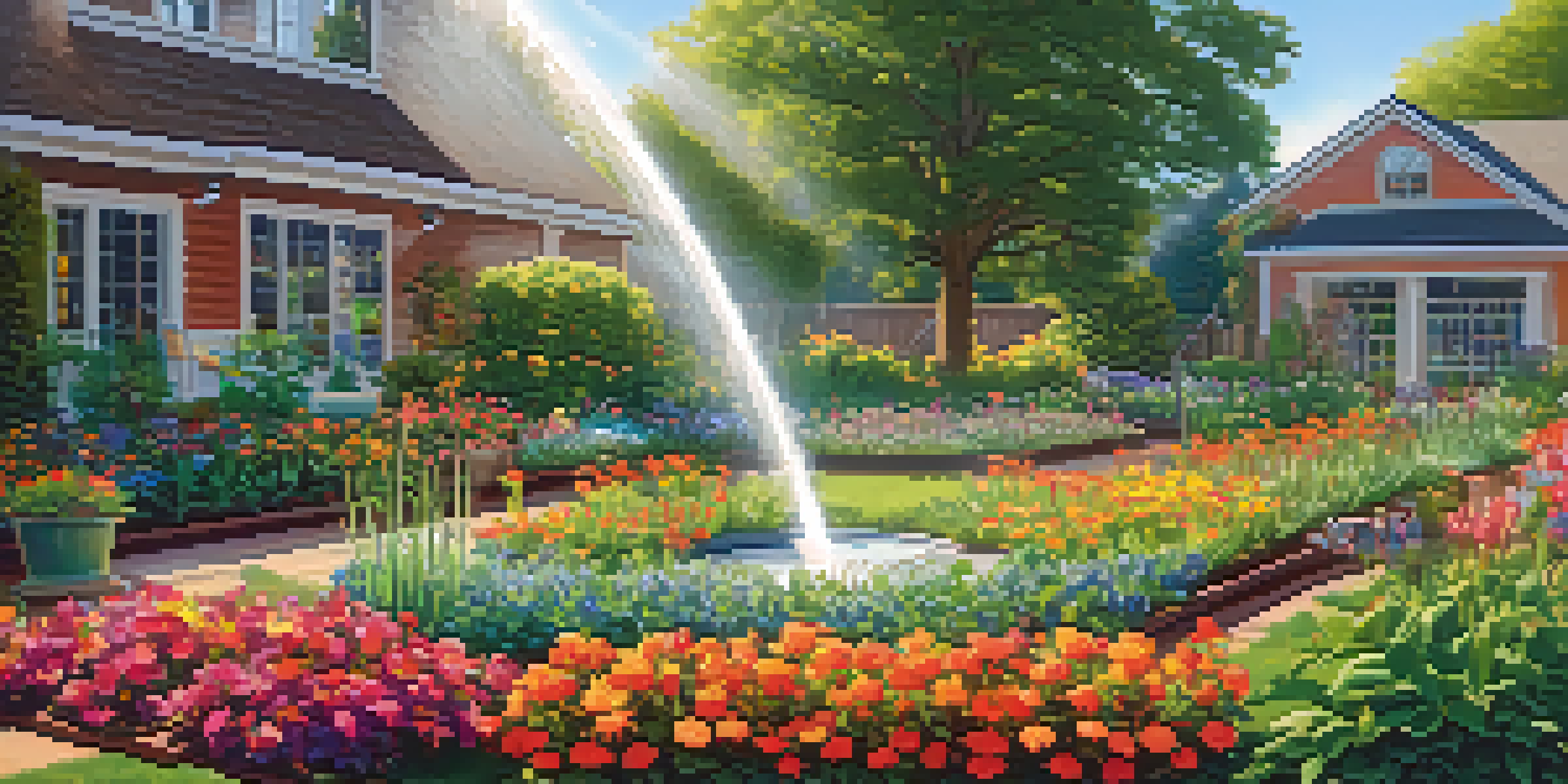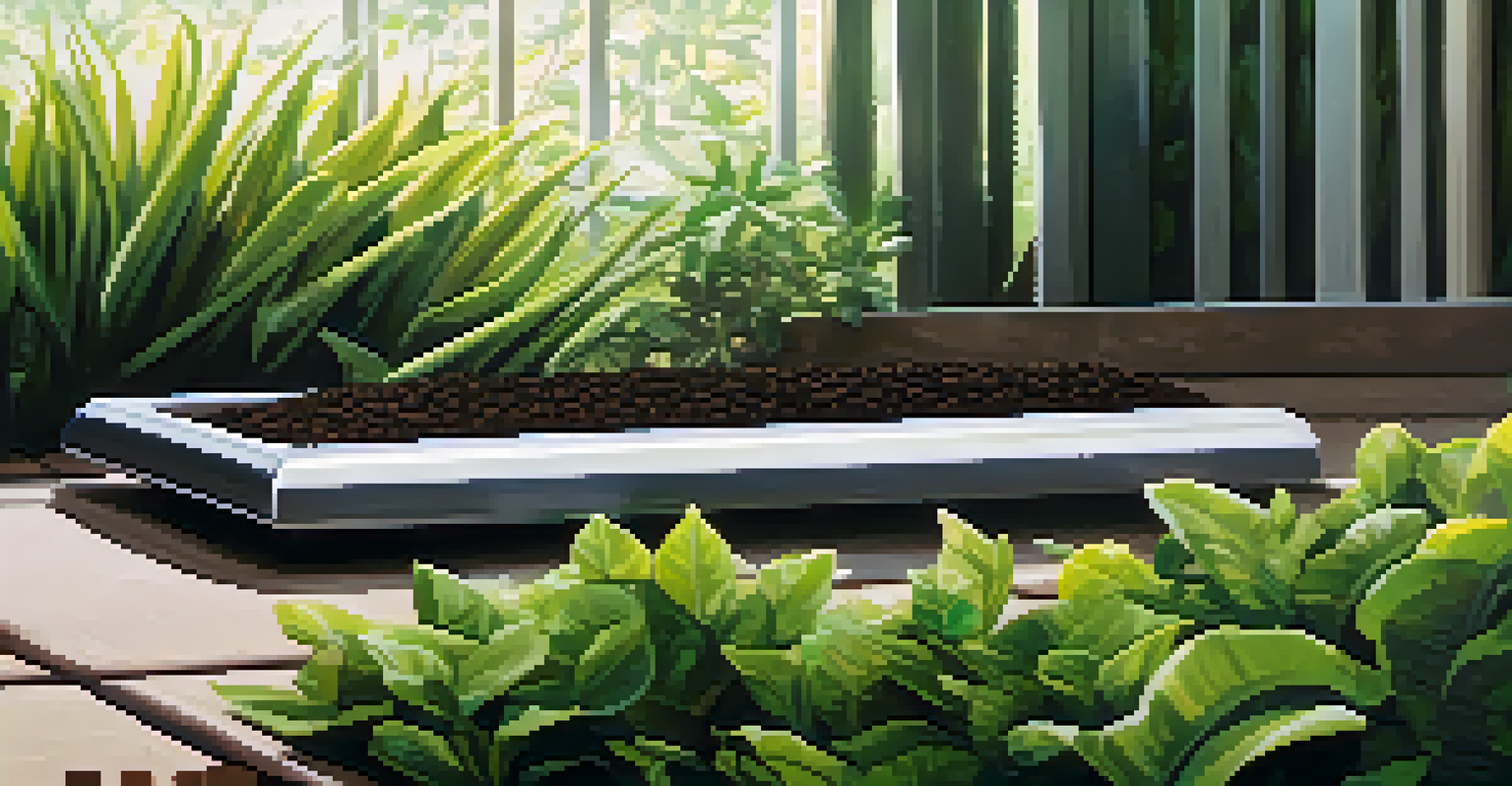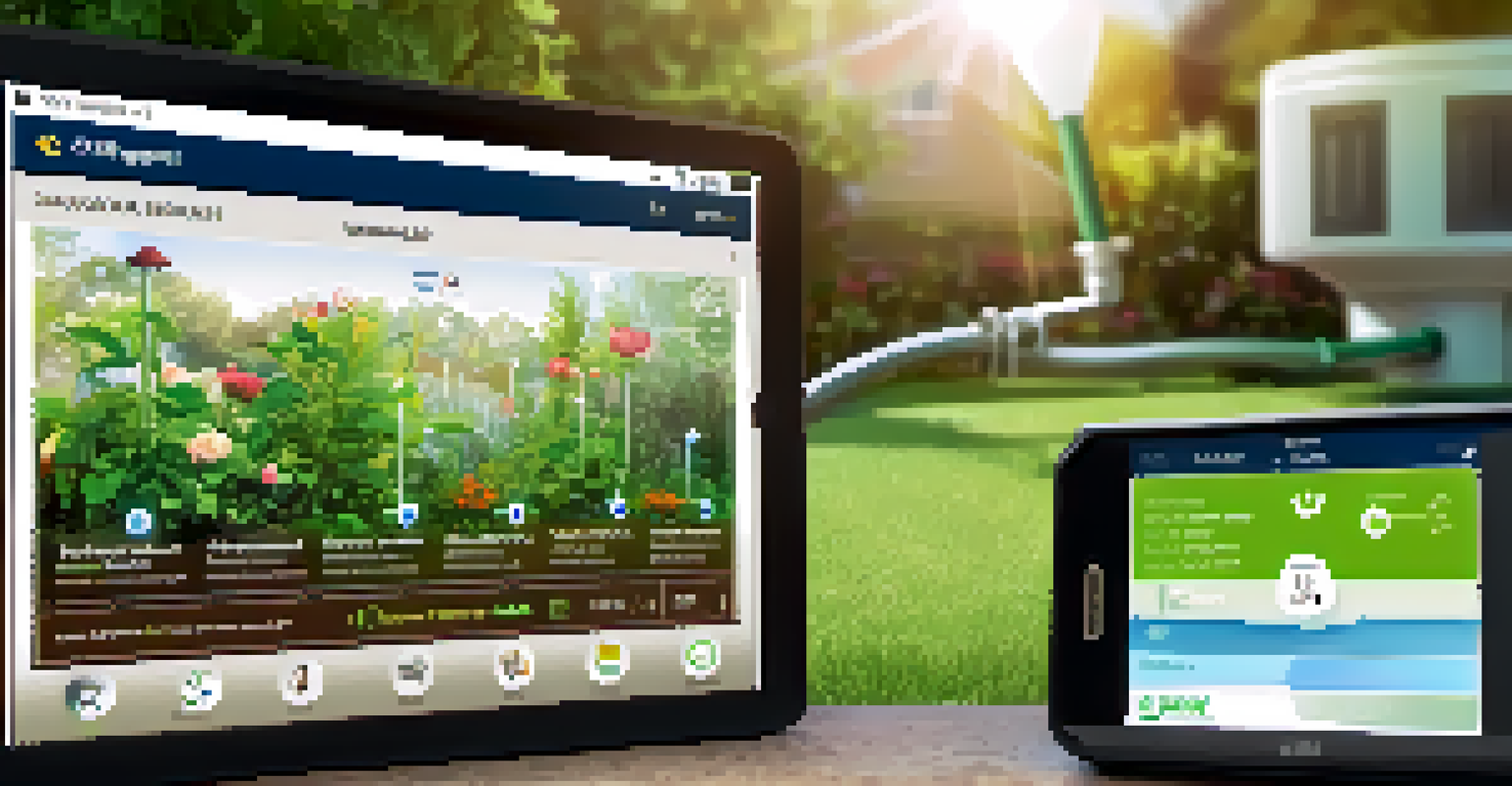Automating Your Garden with Smart Irrigation Systems

What Are Smart Irrigation Systems and How Do They Work?
Smart irrigation systems are innovative technologies designed to optimize watering schedules for gardens and landscapes. These systems use sensors and weather data to determine the best times to water, ensuring plants receive the right amount of moisture. By adjusting to environmental conditions, smart irrigation helps conserve water and promotes healthier plant growth.
Water is the driving force of all nature.
Imagine having a personal assistant for your garden, one that knows just when to give your plants a drink based on temperature and humidity. That's essentially what these systems do—they take the guesswork out of watering. Whether you're on vacation or simply busy, your garden continues to thrive thanks to their automated capabilities.
Moreover, many smart irrigation systems can be controlled via mobile apps, allowing you to manage your garden remotely. This convenience means you can monitor moisture levels, adjust schedules, and receive alerts right from your smartphone, making gardening easier and more accessible for everyone.
Benefits of Automating Your Garden's Watering System
One of the primary benefits of smart irrigation systems is water conservation. Traditional watering methods often lead to overwatering or under-watering, which can waste precious resources. With a smart system, you can ensure that water is used efficiently, reducing your water bill and helping the environment.

Additionally, these systems promote plant health by providing consistent moisture levels. Plants thrive when they receive the right amount of water at the right time, preventing issues like root rot or drought stress. This consistency is especially important for gardeners who may not be able to water their plants regularly.
Smart Systems Save Water and Time
Smart irrigation systems optimize watering schedules, conserving water and reducing manual labor for gardeners.
Lastly, automating your garden means less labor for you. Instead of spending time manually adjusting hoses or watering cans, you can set and forget your irrigation system. This extra time can be spent enjoying your garden rather than maintaining it, making gardening a more enjoyable hobby.
Choosing the Right Smart Irrigation System for Your Garden
Selecting the right smart irrigation system depends on several factors, including the size of your garden and the types of plants you grow. Some systems are designed for small home gardens, while others cater to larger landscapes. Take the time to assess your needs and choose a system that fits your gardening style.
The best time to plant a tree was twenty years ago. The second best time is now.
It's also essential to consider the technology behind the system. Many options feature drip irrigation, which delivers water directly to the roots of plants, minimizing waste. Others may incorporate sprinkler systems or even misting for delicate plants. Understanding these different methods can help you make an informed decision.
Lastly, check for compatibility with smart home devices. Many modern irrigation systems can integrate with platforms like Amazon Alexa or Google Home, allowing for voice control and greater automation. Ensuring your system fits seamlessly into your existing smart home setup can enhance your gardening experience.
Setting Up Your Smart Irrigation System
Installing a smart irrigation system might sound daunting, but it's typically straightforward. Most systems come with detailed instructions, and many manufacturers offer online support or video tutorials. Start by mapping out your garden to determine the best placement for sensors and watering components.
Once you have a plan, you'll need to install the main controller, which is usually placed indoors or in a shaded area. Connect it to the water supply and set up the sensors in your garden. These sensors will monitor soil moisture and weather conditions, allowing the system to adjust watering schedules accordingly.
Real-Time Weather Integration
These systems adjust watering based on real-time weather data, preventing overwatering and promoting healthier plants.
After installation, take some time to familiarize yourself with the system's app or control panel. You can customize settings such as watering times, frequency, and duration. This initial setup is crucial for maximizing the benefits of your smart irrigation system and ensuring your garden flourishes.
Integrating Weather Data for Optimal Watering
One of the standout features of smart irrigation systems is their ability to integrate real-time weather data. By monitoring local weather conditions, these systems can adjust watering schedules automatically. For instance, if rain is forecasted, the system can skip watering, helping you save water and maintain healthy plants.
This integration not only conserves water but also reduces the risk of overwatering. Overwatering can lead to various plant issues, such as fungal diseases or root rot. With smart systems, you can rest assured that your garden is receiving the right care based on current weather patterns.
Additionally, some systems can provide historical weather data, allowing you to analyze trends over time. This information can help you make informed decisions about your watering needs, especially during changing seasons. Embracing this technology can truly elevate your gardening game.
Cost Considerations When Automating Your Garden
When considering a smart irrigation system, cost is a crucial factor. Prices can vary widely depending on the features and size of the system you choose. While some may see it as a significant upfront investment, the long-term savings on water bills and maintenance can often justify the expense.
It's also essential to factor in installation costs, especially if you opt for professional installation. Some homeowners may feel comfortable setting up the system themselves, which can save money. However, if you're unsure about the process, hiring a professional can ensure it's done correctly and efficiently.
Consider Costs and Maintenance
While the initial investment can vary, the long-term savings and necessary maintenance are crucial factors to consider.
Lastly, keep an eye out for rebates or incentives from local governments or water conservation programs. Many municipalities offer financial assistance for installing water-efficient systems, making it more affordable to transition to smart irrigation. Doing your research can help you find ways to reduce costs while enhancing your gardening experience.
Maintaining Your Smart Irrigation System
Regular maintenance is key to ensuring your smart irrigation system operates effectively. This includes checking for clogged filters, ensuring sensors are clean, and testing the system periodically. A little upkeep goes a long way in extending the lifespan of your irrigation system.
It's also important to adjust your watering schedule seasonally. As the weather changes, so do the watering needs of your plants. Most smart systems allow you to easily modify settings through an app, ensuring your garden gets the appropriate care year-round.

Finally, keep an eye on your plants. They can be great indicators of how well your irrigation system is performing. If you notice wilting or yellowing leaves, it might be time to revisit your watering settings. Staying attuned to your garden will help you make the most out of your smart irrigation system.